Supporting and developing change.
Transnet interacts with and supports a wide range of activities in conjunction with our stakeholders. These include ensuring that an adequate platform is provided for Transnet tenders, adherence to Broad-Based Black Economic Empowerment , as well as compliance with legislative requirements that pertain to environmental management.
B-BBEE Guide
Broad-Based Black Economic Empowerment
Transnet supports the broad impetus of B-BBEE to structure and transform the economy to enable meaningful participation of the majority of its citizens, and to further create capacity within the broader economic landscape at all levels through:

Skills development

Employment equity

Socio-economic development

Preferential procurement

Enterprise development

Promotion of black entrepreneurs

The advancement of cooperatives

Long Term Planning Framework
Transnet’s Infrastructure Landscape
The framework within which the long-term development of South Africa’s freight transportation network and the expansion of Transnet’s operational footprint can be executed.
Transnet Studies
We share our knowledge.
Transnet is a major player in the South African economy. Its myriad activities are guided and informed by government policies, rules and regulations. As a state-owned company, Transnet will endeavour to ensure that all studies it conducts during the course of normal business activities and that is for public consumption, is published timeously.


Enterprise Development HUB
Our enterprise incubator.
Enterprise and Supplier Development (“ESD”) is a key element of South Africa’s developmental agenda. It is important that we create an enabling environment for meaningful participation in the economy as well as to support and empower black owned SMME’s. It refers to one of the three priority elements of the B-BBEE Codes of Good Practice aimed at capacitating and promoting economic growth for small enterprises. The target for Enterprise and Supplier Development (ESD) is 3% of Net Profit After Tax (NPAT). Due to the importance of this pillar, ESD has become a priority element. This means if Transnet spends less than 40% of the target, there will be a B-BBEE Level downgrade. Transnet’s ESD’s strategic objective is to increase the competitiveness, capacity and capability of Black Owned Suppliers through financial and non-financial support services.
Transnet remains committed to empowering SMEs and Black enterprises as well as giving effect to Governments policy on B-BBEE. Transnet achieves its social, transformation and developmental objectives through direct and Indirect Enterprise and Supplier Development. The historic lack of investment in infrastructure in South Africa has had a significant impact on local industry resulting in the loss of key skills and a decrease in manufacturing industry capabilities. It has also impacted the ability to do business in South Africa and subsequently negatively impacted our economic growth potential as can be seen by the historically low levels of gross fixed capital. It is against this background that Transnet needs to prioritise localisation opportunities and provide intensive support to Black-owned Suppliers in line with the identified opportunities.
ESD Impact over five years

IncubationMore than 550 businesses were trained and incubated
Loans to small businessesMore than 800 jobs were created
Business Training56 suppliers have managed to do business with Transnet
Transnet Approach to Localisation.
Transnet has embarked on a localisation strategy to revitalize the manufacturing sector in South Africa. The key focus will be on Steel and Metal, scrap and waste management as well as rail sector through:
Geography
Consideration of geography, Market and demand per region for sustainability.
Cost
Consider infrastructure to support the activities and cost of manufacturing process.
Identity Suppliers
Identify and select competent suppliers that will form part of the value chain.
Transnet currently has five ED hubs, namely:
De Aar
Mdantsane
Carlton Centre
Saldanha Bay
Empangeni Richards Bay
Private Sector Participation
Transnet’s core mandate is to effectively manage the cost of doing business in South Africa.
Transnet’s core mandate is to effectively manage the cost of doing business in South Africa, enable economic growth and enable security of supply through providing appropriate ports, rail and pipeline infrastructure as well as operations in a cost-effective and efficient manner, within global benchmarks.
Key to delivering on its core mandate is leveraging Private Sector Participations (PSP), which are premised on a diversified market approach that will unlock profitable and efficient supply chains. Transnet has adopted a segment strategy approach in response to socio-economic shifts and structural changes in the economy.
This represents a fundamental change for the organisation, away from a divisional, modal service offering to strategic participations and structured collaborations in integrated commodity supply chains. The strategy will enable Transnet to participate in numerous integrated commodity value chains, and work together with the private sector to rethink, reimagine and grow Transnet’s investment portfolio in a financially sustainable manner while unlocking new revenue streams.
Transnet is working with all stakeholders to ensure the success of its PSP rollout and is seeking partnerships to grow market share.
PSP models will be pursued where:
- The required investments are either unaffordable to Transnet alone or are complementary to Transnet’s strategy.
- Transnet aims to unlock efficiencies through leveraging the private sector expertise; and
- Business opportunities within ports, rail and pipelines are non-core to Transnet’s operations.

